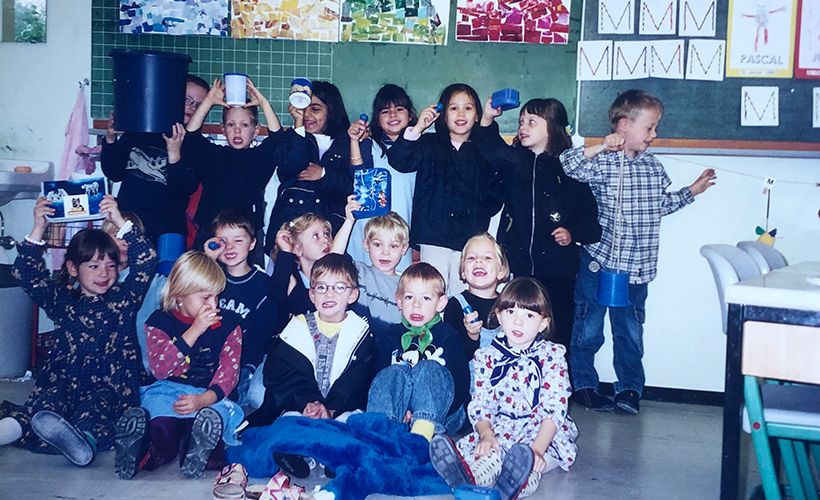
“So… Where are you from?”
What I say is, “Malaysia”
“What? You’re not Malaysian!”
What I want to say is, I’m tired
I’m tired of being judged for my face
And how it’s always associated with a foreign place
I’m tired of my society being stuck on race
And how I always have to fight my case
I’m tired of this cultural maze
And how it’s perpetuated so everyone remains in a daze
Clinging to their preconceived racial identities in a hurried haze
But mostly I’m tired of my people forgetting that we’re all equal
And that the colour of our skin isn’t a blessing or a sin
And that we each have an opportunity to rise and to win
But what I say is, “My mum’s Malay and my dad’s German.”
Spilling the teh
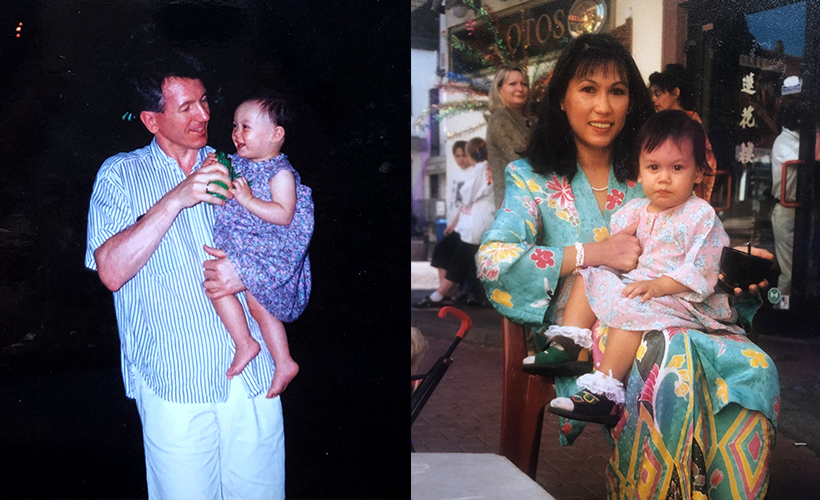
My parents met while my mum was living in Frankfurt, and for almost seven years, I lived in Germany. We returned to Kuala Lumpur, Malaysia, in 2003 and have been here since then. I can confidently say I’m more Malaysian than German, due to spending the majority of my life in the tropics; absorbing not only the heat but the culture, too. Yet, to my fellow citizens, I’m somewhat of an outcast weh.
Have you ever read Harry Potter? In the acclaimed series, one of the (main) protagonists, Hermione Granger, was constantly referred to as a mud-blood by Draco Malfoy. The term referenced her heritage and how she was different from the witches and wizards among her. This genetic difference didn’t make Hermione better or worse, it simply created an invisible barrier between her and her community.
Children born with mixed ethnicity are living embodiments of Hermione’s struggle(s). Some friends and I even jokingly refer to ourselves as mud-bloods. Unintentionally, we have been externally displaced by ideology – specifically, by the conditioned mindset of what a particular nationality should look or sound like. Or how they ought to behave. Through our upbringing, we have filled ourselves with more of one culture over the other, resulting in feeling internally displaced.
My poem clearly illustrates my struggle to be recognised as a Malaysian, but in Germany, I stick out like a sore thumb as well. For example, I was having lunch with my grandfather in the kampung he’s from, and we were speaking German as he can’t converse in English. At some point, the waitress working the corner we were in inquisitively proclaimed, “You’re not German – I can see it in your eyes!” Until now, I fail to comprehend how my eyes conveyed this, especially as we shared the same eye colour.
Stop Grab-ing for information
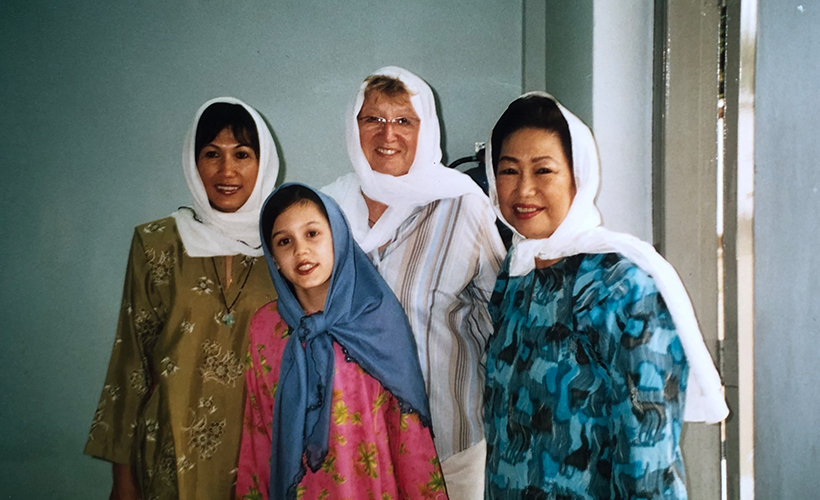
Watching others struggle to guess my nationality can be entertaining, but mostly, it’s tiring. It’s a type of tired you’re acquainted with. During family functions, how do you feel when being relentlessly interrogated on your weight and marital status? Malas nak jawap/ Kecoh, kan?
I’m as kepo as any other Malaysian, so I genuinely don’t mind satiating the curiosity of others, but sometimes the questions go too far – just like at family functions. Here is a string of questions I’ve received within the span of 10 minutes of entering a Grab: You’re Malay? So, you’re Muslim? But you have tattoos? Do you have a Malaysian passport? Do you receive Bumi benefits?
Sometimes, it’s the opposite end of the spectrum and the Grab driver starts ranting about Bumi privileges. As a person aware of the political landscape in Malaysia, and as an advocate for equality, these types of questions make me uncomfortable. Nowadays, I just gauge the energy of the question and if I feel the need to omit facts in order to remain comfortable, that’s what I do.
But it shouldn’t have to be like that lah.
So, gentle reminder #1: Respect other people’s boundaries – especially during these times. If someone is ready to share their story or struggles with you, they will.
Kita jaga kita
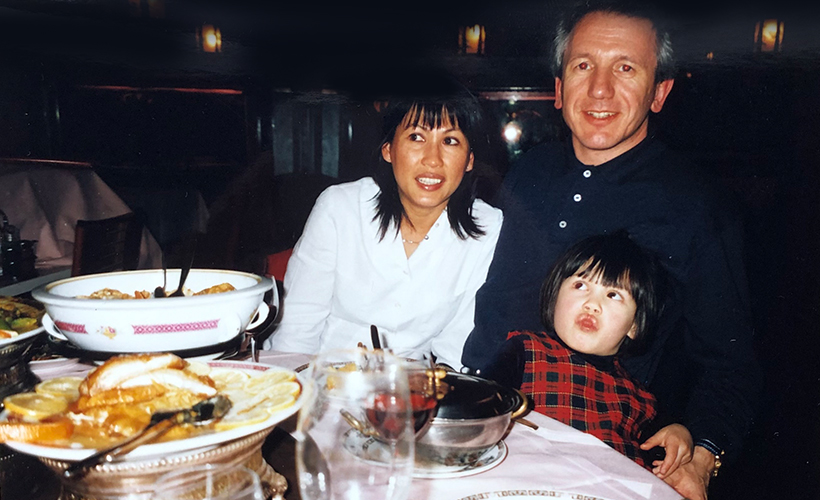
It’ll be64 years ago tomorrow that Malaysia was un-colonised. But due to the power of mainstream media, many Malaysian minds, and even industries, remain colonised – particularly the beauty industry. Marketing content for local beauty brands almost always feature women with light-coloured everything: eyes, hair, and skin. Just browse through Guardian or Watson to find countless whitening products for both sexes. The most disturbing product I found was whitening feminine wash.
Another form of Western idolisation would be how, pre-pandemic, Malaysians would more commonly layan international brands jer over local brands. Examples can range from clothes (Zara) to education (Nottingham University) to food (TGIF) and more! Since the pandemic, sapot-ing ‘lokal’ brands over international ones has become the norm, and I certainly hope it remains that way. Malaysia is rich with culture and there is plenty to be proud of and to support, like these brands reviving batik.
So, gentle reminder #2 and 3: Practice self-love by checking in on your mental health and continue to sapot lokal.
Forever 1Malaysia lah
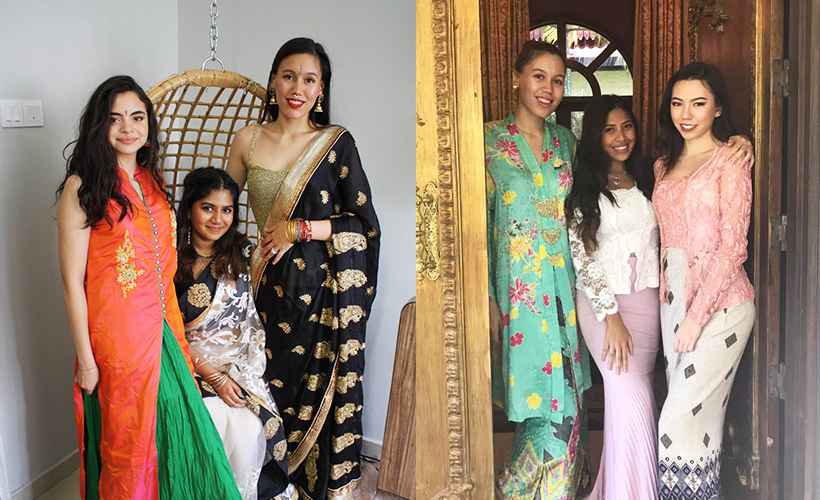
I was literally raised among billboards proclaiming 1Malaysia. It’s not an advertisement or a lofty concept to me — it’s a way of life. Every Malaysian I interact with is aunty, uncle, sister, or brother to me; regardless of ethnicity. Yes, I’ve been scrutinised for being a mud-blood, but it’s taught me to never judge anybody and to not treat anybody differently based on their demographic. In fact, being mud-blood has made me cling onto my Malaysian roots more than anything in an attempt to feel less displaced and more part of something.
Truly, it’s a blessing to be able to partake annually in not only one but three festive seasons altogether. And no, I’m not culturally appropriating. I’m respecting the various cultures within Malaysia by learning about and honouring its practices. Buddhism has taught me about attachment. Islam has taught me about forgiveness. Hinduism has taught me about atman.
In short: we can all learn from each other by appreciating each other.
Yes, racial and religious discrimination is still happening in Malaysia, but it’s not our skin colours that need to change. It’s the mindset; the idea that someone is better than another.
So, gentle reminder #4: We are all equal. Instead of fighting each other, let’s fight together to create that 1Malaysia we were promised.
Can or not ah?
If you liked my poem, you can discover my poetry here or can purchase my illustrated poetry collection via Gerak Budaya (or alternatively, via Amazon).



